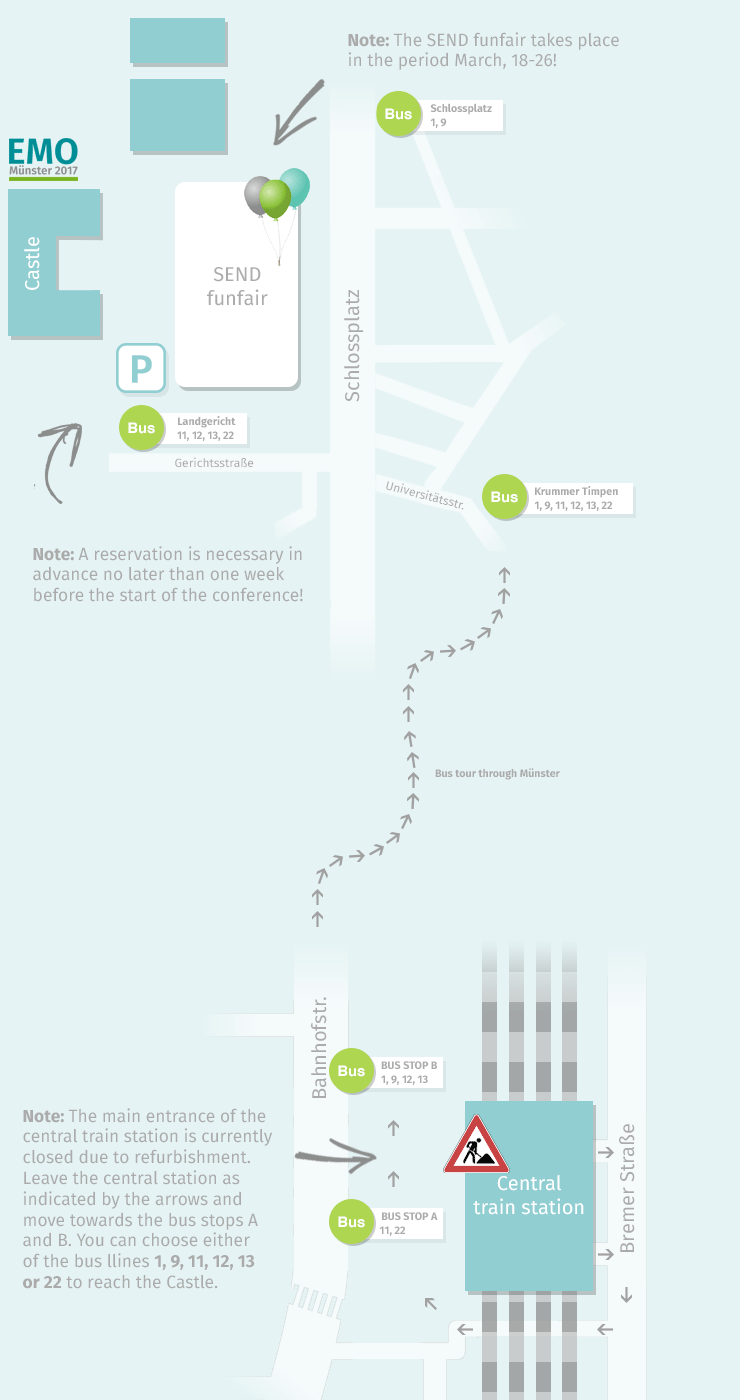Important dates
| Notification of acceptance: | Dec. 1, 2016 |
| Final paper submission due: | Dec. 23, 2016 |
| Registration: | Early: until Jan. 31, 2017 Regular: until Feb. 28, 2017 |
| Conference: | March 19-22, 2017 |
EMO-HELPLINE
Call the following number in case you need urgent help:
+49 152 38081789
Registration
Regular registration ended on Feb. 28, 2017. Only "on-site" registration is possible (450€ in cash).
Conference schedule/program
The final program is available now.
| March 19 (half-day) | Talks, Welcome Reception |
| March 20 | Talks, Competition |
| March 21 | Talks, Guided City Tour, Conference Dinner |
| March 22 (half-day) | Talks |
Accommodation
The EMO conference takes place at the University of Münster and thus there is no dedicated conference hotel. Each hotel in the city center is well-suited for reaching the conference location in the castle by feet, bus or (rented) bicycle.
Please also have a look at the accommodation service provided by the city of Muenster.
Paper Submission
Submission of papers in Springer LNCS format. Papers should not exceed the page limit of 15 pages. Submission is done via EasyChair.
Poster Session
Each poster will be displayed on its own poster board. The boards have an approximate size of 1 x 2m (portrait style). Thus, posters printed in common formats such as DIN A0 (84.1cm x 118.9cm) will fit on the boards! Note that the surface of the poster boards is covered by tissue. Therefore, the posters can only be attached with velcro (= hook-and-loop) strips. But don't worry, we have two-sided tape (regular tape on one side and hook-and-loop tape on the other side) for you at the registration desk.
Call for papers
EMO 2017 is the 9th International Conference on Evolutionary Multi- Criterion Optimization, aiming to continue the success of previous EMO conferences. We will bring together both the EMO and the multiple criteria decision making (MCDM) communities and moreover focus on solving real-world problems in government, business and industry. The classical EMO format will be supplemented by an EMO competition.
Following the tradition of the EMO community, the conference will be in single session format, with papers provided as either oral or as poster presentations. The conference format will include:
- Invited keynote speakers
- EMO track
- MCDM track
- Real-world applications track
- EMO competition
The conference will take place in the beautiful city of Münster (Germany) considered to be the cultural center of the Westphalia region as well as the bicycle capital of Germany.
We aim to discuss all aspects of EMO development and deployment, including (but not limited to):
- Theoretical foundations
- Constraint handling techniques
- Preference handling techniques
- Handling of continuous, combinatorial or mixed-integer problems
- Local search techniques
- Hybrid approaches
- Stopping criteria
- Parallel EMO models
- Performance evaluation
- Test functions and benchmark problems
- Algorithm selection approaches
- Many-objective optimization
- Large scale optimization
- Real-world applications
- EMO algorithm implementations
Accepted papers
Competitions
The EMO'2017 track is finally ready! It consists of 10 challenging real-world bi-objective problems from various domains. Find more information on the official BBComp website.
The second game-related EMO'2017 track is now ready.
Moreover, information on the associated GameJam is available now.
Keynote Speakers
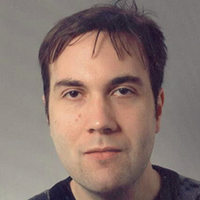
Michael Emmerich
Faculty of Science
LIACS Leiden University, NL
Indicator-Based Multiobjective and Set-Oriented Optimization
Abstract: In 2004, about 12 years ago, term "Indicator-based Multiobjective Optimization" was coined by Eckart Zitzler and Simon Künzli. Already then the road to this new paradigm was paved by pioneering work on performance indicators and using them in bounded size archivers for non-dominated point sets. The basic idea is to use performance indicators for Pareto front approximation directly, in order to guide a population of points towards a well-distributed set on the Pareto front. The research on this type of algorithm was particularly active for the hypervolume indicator, but also other indicators such as the averaged Hausdorff distance, R2 indicator, Sharpe ratio, and epsilon indicators received and are still receiving considerable attention. In this talk some major empirical and theoretical results will be reviewed and a perspective of this field in the light of new developments, such as decomposition-based evolutionary multi-objective optimization algorithms and set-oriented numerical optimization methods will be provided.
Short CV: Dr. Michael Emmerich is Associate Professor at LIACS, Leiden University, and leader of the Multicriteria Optimization and Decision Analysis research group. He was born in 1973 in Coesfeld (near Münster) and received his doctorate in 2005 from Dortmund University (H.-P. Schwefel promoter). He carried out projects as a researcher at ICD e.V. (Germany), IST Lisbon, University of the Algarve (Portugal), ACCESS Material Science e.V. (Germany), and the FOM/AMOLF institute on Fundamental Science of Matter (Netherlands). He is known for pioneering work on model-assisted and indicator-based multiobjective optimization, and has edited 4 book, and co-authored more than 100 papers in multicriteria optimization algorithms and their application in computational chemistry and engineering.
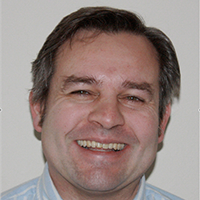
Thomas Stuetzle
IRIDIA
Université Libre de Bruxelles, Belgium
Automated Design of Algorithms from Flexible Algorithm Frameworks
Short CV: Dr. Stützle is a senior research associate of the Belgian F.R.S.-FNRS working at the IRIDIA laboratory of Université libre de Bruxelles (ULB), Belgium. He received his PhD and habilitation in computer science both from the Computer Science Department of Technische Universität Darmstadt, Germany in 1998 and 2004, respectively. He is the co-author of two books about "Stochastic Local Search: Foundations and Applications'' and "Ant Colony Optimization'' and he has extensively published in the wider area of metaheuristics including 21 edited proceedings or books, 9 journal special issues, and more than 200 journal, conference articles and book chapters, many of which are highly cited. His main research interests are in metaheuristics, swarm intelligence, methodologies for engineering stochastic local search algorithms, multi-objective optimization, and automatic algorithm configuration.
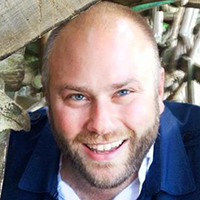
Julian Togelius
Department of Computer Science and Engineering
New York University, USA
Challenges for multi-criterion optimization in games
Short CV: Julian Togelius is an Associate Professor in the Department of Computer Science and Engineering, New York University, USA. He works on all aspects of computational intelligence and games and on selected topics in evolutionary computation and evolutionary reinforcement learning. His current main research directions involve search-based procedural content generation in games, general video game playing, player modeling, and fair and relevant benchmarking of game AI through competitions. He is a past chair of the IEEE CIS Technical Committee on Games, and an associate editor of IEEE Transactions on Computational Intelligence and Games. Togelius holds a BA from Lund University, an MSc from the University of Sussex, and a PhD from the University of Essex. He has previously worked at IDSIA in Lugano and at the IT University of Copenhagen.
Organizers
General Chairs
-
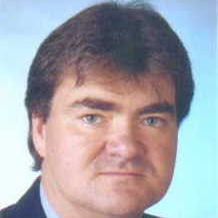
Guenter Rudolph
Algorithm Engineering
TU Dortmund University, Germany
-
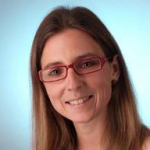
Heike Trautmann
Information Systems and Statistics
WWU Münster, Germany
Program Chairs
-

Yaochu Jin
Department of Computer Science
University of Surrey, UK
-
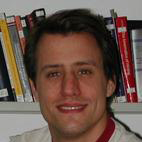
Oliver Schütze
Department of Computer Science
CINVESTAV, Mexico
-
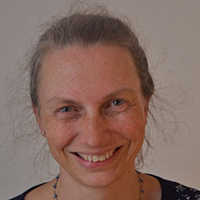
Kathrin Klamroth
School of Mathematics and Natural Sciences
University of Wuppertal, Germany
-
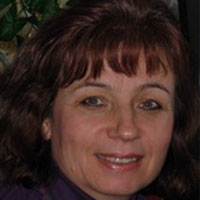
Margaret Wiecek
Department of Mathematical Sciences
Clemson University, USA
Proceedings & Publicity Chairs
-
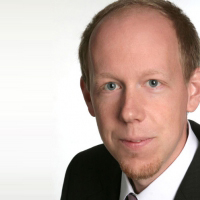
Christian Grimme
Information Systems and Statistics
WWU Münster, Germany
-
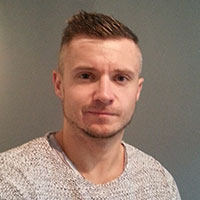
Jakob Bossek
Information Systems and Statistics
WWU Münster, Germany
Competition Chairs
-
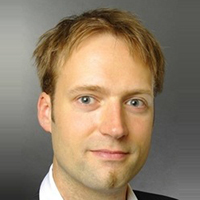
Tobias Glasmachers
Institute for Neuroinformatics
Ruhr University Bochum, Germany
-
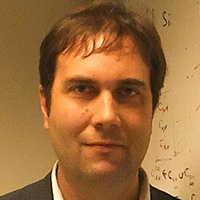
Michael Emmerich
Faculty of Science
LIACS Leiden University, NL
Local Organizers
-
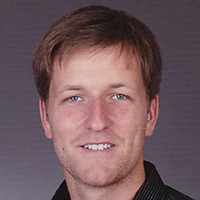
Pascal Kerschke
Information Systems and Statistics
WWU Münster, Germany
-
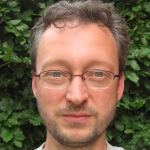
Mike Preuß
Information Systems and Statistics
WWU Münster, Germany
EMO Steering Committee
David Corne, Heriot-Watt University, UK
Kalyanmoy Deb, Michigan State University, USA
Peter J. Fleming, University of Sheffield, UK
Carlos M. Fonseca, University of Coimbra, Portugal
Hisao Ishibuchi, Osaka Prefecture University, Japan
Joshua D. Knowles, University of Birmingham, UK
Kaisa Miettinen, University of Jyväskylä, Finland
J. David Schaffer, Binghamton University, USA
Lothar Thiele, ETH Zürich, Switzerland
Eckart Zitzler, PH Bern, Switzerland
Social program
Welcome Reception
| When: | Evening of Sunday, March 19, 2017 (exact time: 19:00) |
| Where: | Restaurant "Schlossgarten" (in the botanical garden, next to the castle) |
We want to welcome you to EMO 2017 in the Schlossgarten restaurant, which is located right next to Münster's castle, i.e. the venue, where all the presentations will take place.
The castle itself was finished in 1787 as a palace of the Prince-Bishop Maximilian Friedrich and is nowadays home to the university administration - and our conference. This historical site with its facade in a characteristic combination of sandstone and red brick is surrounded by the beautiful botanical garden, along with its greenhouses and the lovely Schlossgarten restaurant, giving you the perfect venue for a nice welcome drink to the conference. If you want to spend more time in the garden or the greenhouses, you can visit them on your own as well. They are open to the public and can be visited daily (admission free, opening hours open areas: 8 am - 7 pm, open hours greenhouses: 8 am - 4.45 pm).
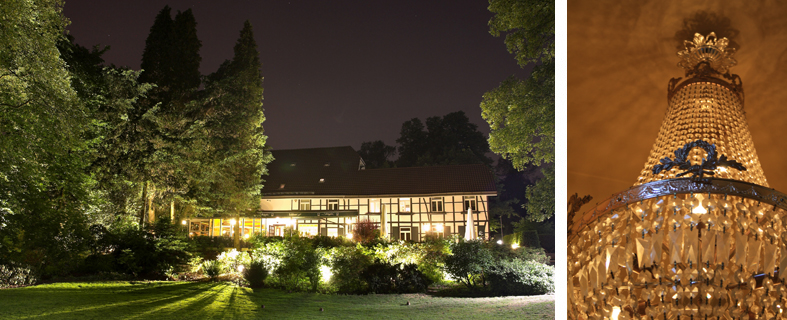
Conference Dinner (and Guided City Tour)
| When: | Evening of Tuesday, March 21, 2017 (exact time: 19:00) |
| Where: | Restaurant "A2" next to the lake "Aasee" |
Our conference dinner will take place at the A2, a charming restaurant next to the lake Aasee. Given this setting, you should have the perfect atmosphere for long and intensive discussions.
Prior to the conference dinner, we intend to make a guided city tour through our beautiful city. The details for that tour will follow.
The pictures below should give you some impressions of the A2 restaurant.

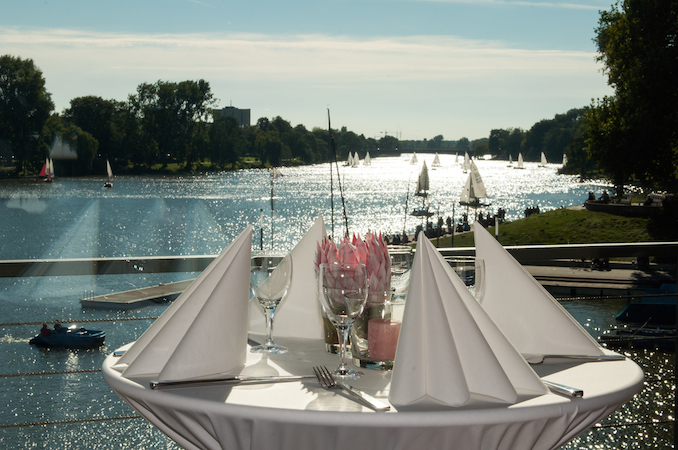
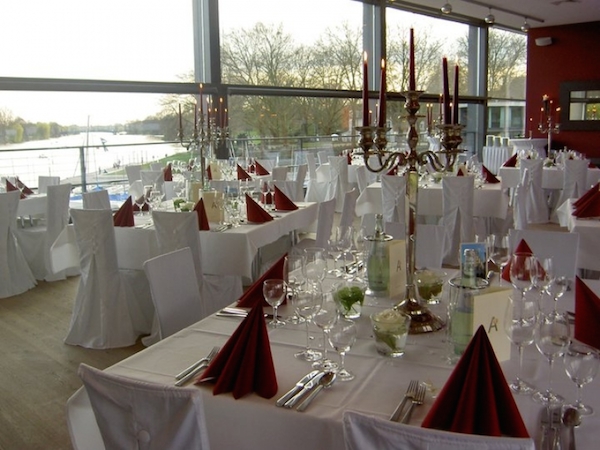
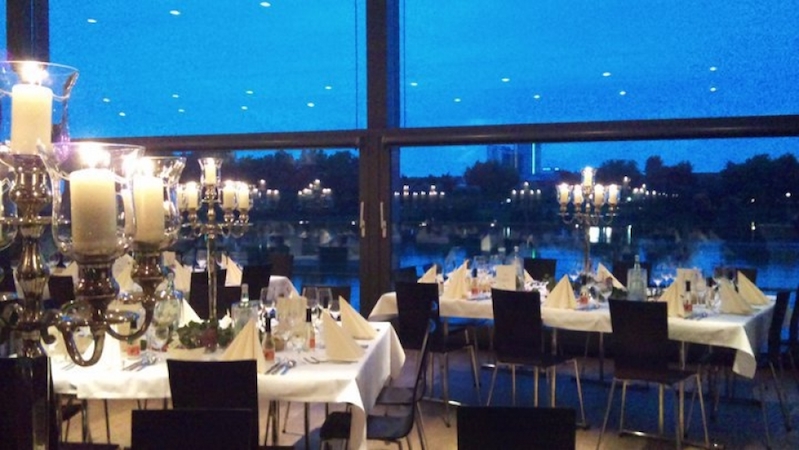
Locations
The map below shows you the location of the two venues of our social events, i.e. the Schlossgarten and the A2.
Venue
The EMO 2017 conference takes place in Münster (Germany). Münster is an independent city in North Rhine-Westphalia, Germany. It is in the northern part of the state and is considered to be the cultural centre of the Westphalia region. It is also capital of the local government region Münsterland. Münster was the location of the Anabaptist rebellion during the Protestant Reformation and the site of the signing of the Treaty of Westphalia ending the Thirty Years' War in 1648. Today it is known as the bicycle capital of Germany.
The conference will take place in the castle of Münster.
A limited number of free parking spaces is available close to the venue. A reservation is necessary in advance no later than one week before the start of the conference!
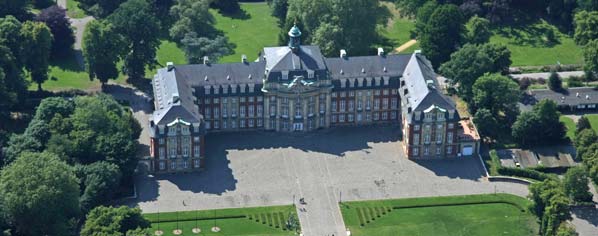
Travel
Münster is easily reachable by plane and by train. We recommend the following airports:
- Münster/Osnabrück Airport (FMO) (30 min. drive or 40 min. by shuttle bus)
- Dortmund Airport (DTM) (40 min. drive or 50 min. by train)
- Düsseldorf Airport (DUS) (1 hour drive or 90 min. by train)
- Frankfurt Airport (FRA) (3 hours by train)
- Amsterdam Airport Schiphol (AMS) (2 1/2 hours drive or 3 1/2 hours by train)
How to reach Münster from Frankfurt Airport (FRA)
Passengers arriving at Terminal 2, please proceed to Terminal 1, Hall B via SkyLine train (free of charge). From Terminal 1, please proceed to the long-distance train station "Frankfurt Fernbahnhof". Tickets are available from the machines in the long-distance train station in the AIRail Terminal. They can be purchased using an EC debit card or a credit card. The desired destination is Münster (Westf) Hbf.
How to reach Münster from Düsseldorf Airport (DUS)
Take the SkyTrain from the Arrival area to Düsseldorf Airport (train station). Train tickets are available from the machines in the long-distance train station "Düsseldorf Flughafen" and the SkyTrain station at the airport. The desired destination is Münster (Westf) Hbf.
How to reach the castle from Münster central train station
Currently, due to refurbishment, it is not possible to leave the central train station through the main entrance. Instead one needs to leave the station as indicated by the arrows in the sketch below. The bus lines 1, 9, 11, 12, 13 and 22 are suitable to reach the conference venue in about 15 minutes.
